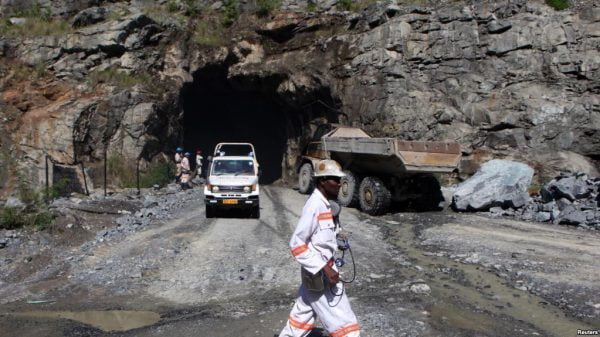Sengwa project, RioZim pursues state guarantee

RioZim Limited has proposed a partnership with Government for its multi-million dollar coal fired power project in Sengwa, Gokwe North, as the firm seeks sovereign guarantee to break barriers to external funding.
The Sengwa North project is part of several independent power projects the Government has licensed to promote initiatives that help reduce the country’s acute power deficit.
Zimbabwe requires about 2 200 megawatts at peak of demand, but limited investment in power projects and aged facilities has restricts reliable output to just 1400MW.
Government is working on several projects to bridge the deficit including the 300MWx2 Hwange Power Station extension, 300MW Hwange upgrade and 2 400MW Batoka Gorge hydro initiative jointly developed with Zambia.
Presently, a yawning gap between supply and demand forces power utility Zesa to effect hours long rationing, which seriously disrupts industrial, commercial and household activities.
RioZim has since the early 1990s hit multiple brick walls in its quest to unlock the millions of US dollars in external funding it requires to implement its 2 800MW megawatts coal plant in Sengwa.
Industrial and Commercial Bank of China (ICBC) was the latest major prospective financier to pull the plug on discussions for potential financing of the power project.
In April 2020, it was reported RioZim would build the plant with China Gezhouba Group Corp., a subsidiary of Power China. It was reported the plant would ultimately be constructed in four phases of 700 MW each, totaling 2 800 MW. In May 2020, it was confirmed that Sinosure was on board to provide risk insurance.
In June 2021, ICBC notified Go Clean ICBC, a campaign coalition of 32 environmental groups, that it wouldn’t be moving forward with financing for the project.
While ICBC’s withdrawal from the project financing had still to be formally announced, it was reported that RioEnergy is seeking alternative financiers.
A highly placed RioZim board member told this publication that following ICBC’s pullout, the company had made a proposal to make Government a partner in the project.
“We are trying to find alternatives. They (ICBC) withdrew their funding, so we are back at the drawing board looking for funding from all the different sources.
“Right now, we are negotiating with several prospective funders, but we have as yet found anything concrete. We think things will change, even internationally people are reconsidering coal.
“As a company, we really need the power because there is (no enough) power in Zimbabwe, so we want more support from the Government.
“So, what we have done is we are asking the Government to become partners (in the project). We have written to the Government proposing a have a PPP (Public Private Partnership) on this project.
“It needs Government support, we are waiting for their response, the Government has to invest in that as well, so, they are yet to come (back to us with a response).
“Anyone who invests in funding the project requires a guarantee that they will be repaid in foreign currency, if you borrow US$1 billion or US$2 billion you must repay in US dollars.
“If you do not have a Government guarantee, that becomes a problem because at current law, all the foreign currency belongs to the Government,” the source said.
“We want the guarantee, as a private company, the Government cannot guarantee a private company, so we are saying why can’t we become partners so that there is justification for guaranteeing,” he said.
Efforts to get comments from Energy and Power Development Minister Zhemu Soda or his the secretary for Energy and Power Development Engineer Gloria Magombo were not successful.
Dr Magombo, who said she was in a meeting when contacted yesterday, had not responded to questions sent to her by the time of going to print.
RioZim has in the past said efforts to secure funding from China, where financiers are still keen to support coal projects, have failed due to Zimbabwe’s sovereign debt.
In October 2021, RioZim said in its half-year trading update that the project remained alive despite the challenges, adding it would continue to look for alternative financing while it also progresses its new solar power stations in Zimbabwe.
The firm holds four independent power licences for establishment of solar power plants at Renco, Cam and Motor, Dalny Mine and Murowa Diamonds Mine.


